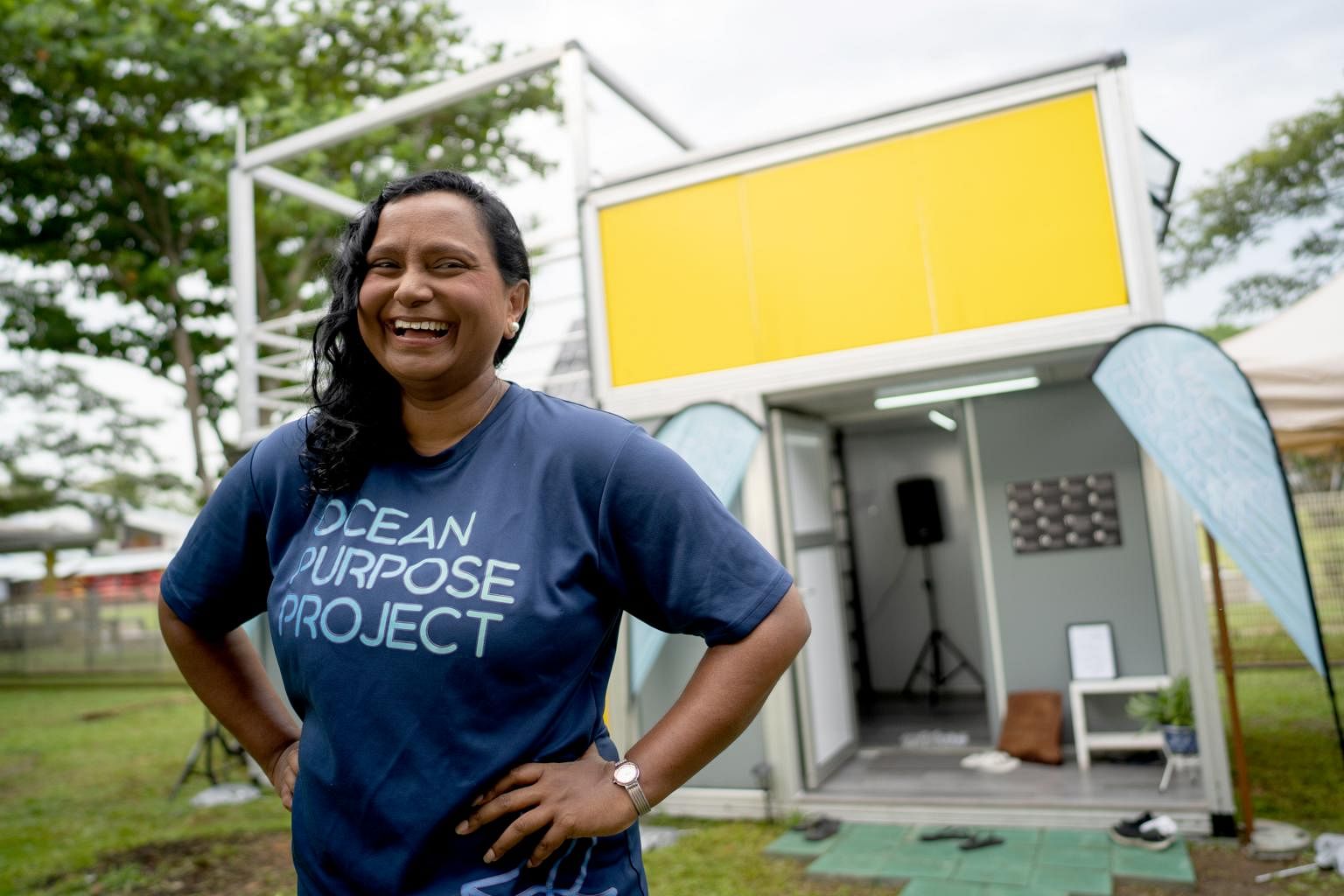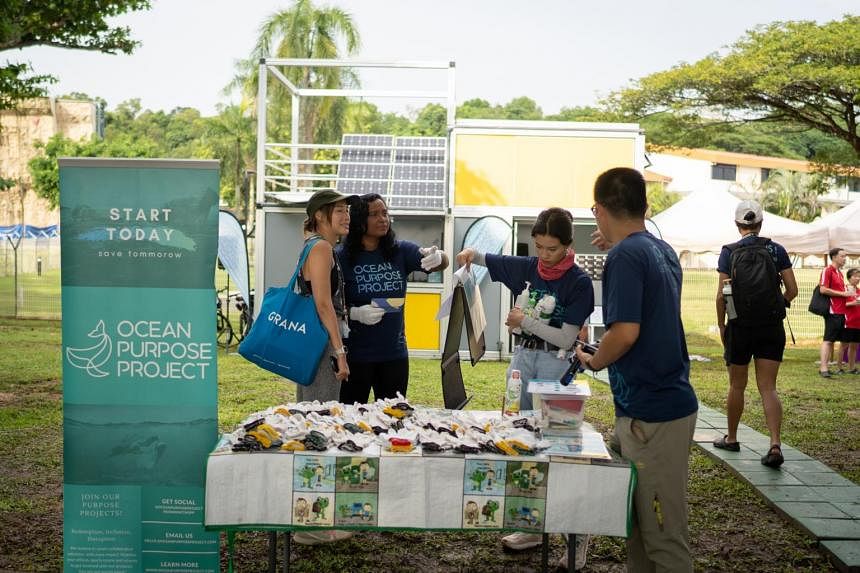SINGAPORE - A new structure set up at Pasir Ris Park will become the focal point of environmental sustainability efforts in the area.
The OPP Beach Hub, set up by social enterprise Ocean Purpose Project (OPP), will act as a place from which researchers can study algae and where volunteers can gather to do monthly beach clean ups.
Launched on Saturday (June 11), it will eventually become a meeting point as well for the group's members to educate fish farm owners about the use of seaweeds and mussels in guarding against algal blooms.
The solar-powered hub measures 6m wide and 3m long.
Ms Mathilda D'Silva, 39, chief executive officer of OPP, said: "It is also meant to be something that can maybe become a studio, a live stream area for us to create content and drive behavioural change in the community.
"There will be staff working from here... it is almost like an office space, but it is also meant to be an interactive community space."
Ms Mathilda said OPP will work with NParks and other organisations to set up a garden on the grass patch in front of the hub.
The garden, which is expected to feature a range of traditional herbs, will be fertilised by seaweed that are washed up on Singapore's beaches. She hopes that the garden can be set up in the next two or three years.
Ms Yeo Wan Ling, an MP for Pasir-Ris-Punggol GRC, said the opening of the hub will give residents in the constituency more opportunities to play their part in environmental sustainability.
OPP was founded in 2020. It aims to create a movement to drive ocean conservation and plastic pollution prevention via creative projects, such as turning plastic waste into hydrogen.
Another one of its projects is the use of seaweed and mussel culture as natural filters to clean Singapore's seas.
For a start, it has worked with a fish farm off Pasir Ris Park to create a curtain of seaweed and mussels around the farm.
OPP has put in place 220 ropes around the farm, so as to attract seaweed and mussels to latch on to them. These seaweed and mussels would feed on algae in the waters, which should thus reduce the risk of algae smothering the waters and fishes within the farm.
This ocean hazard - called harmful algal blooms - is a global phenomenon that is rising in step with increasing fisheries, coastal development and marine exploitation.
Ms Mathilda said the seaweed and mussels grown can be harvested and processed into bio-plastics. She hopes the successful trial of this method would help to attract other fish farms in Singapore to take up the idea as well.

On Saturday, OPP also announced the signing of a memorandum of understanding with James Cook University to study seaweeds off the shore of Singapore. Through this, both path parties hope to create products such as seaweed leathers and bio-plastics.
On why OPP is trying out unconventional ideas in its sustainability drive, Ms Mathilda said: "There is an innate sense of good that people have but there's also this very intense behaviour that is pertinent to our culture today, which is called fear of missing out.
"That's the behaviour we are tapping into, to get people to adopt these kind of practices and think out of the box."


